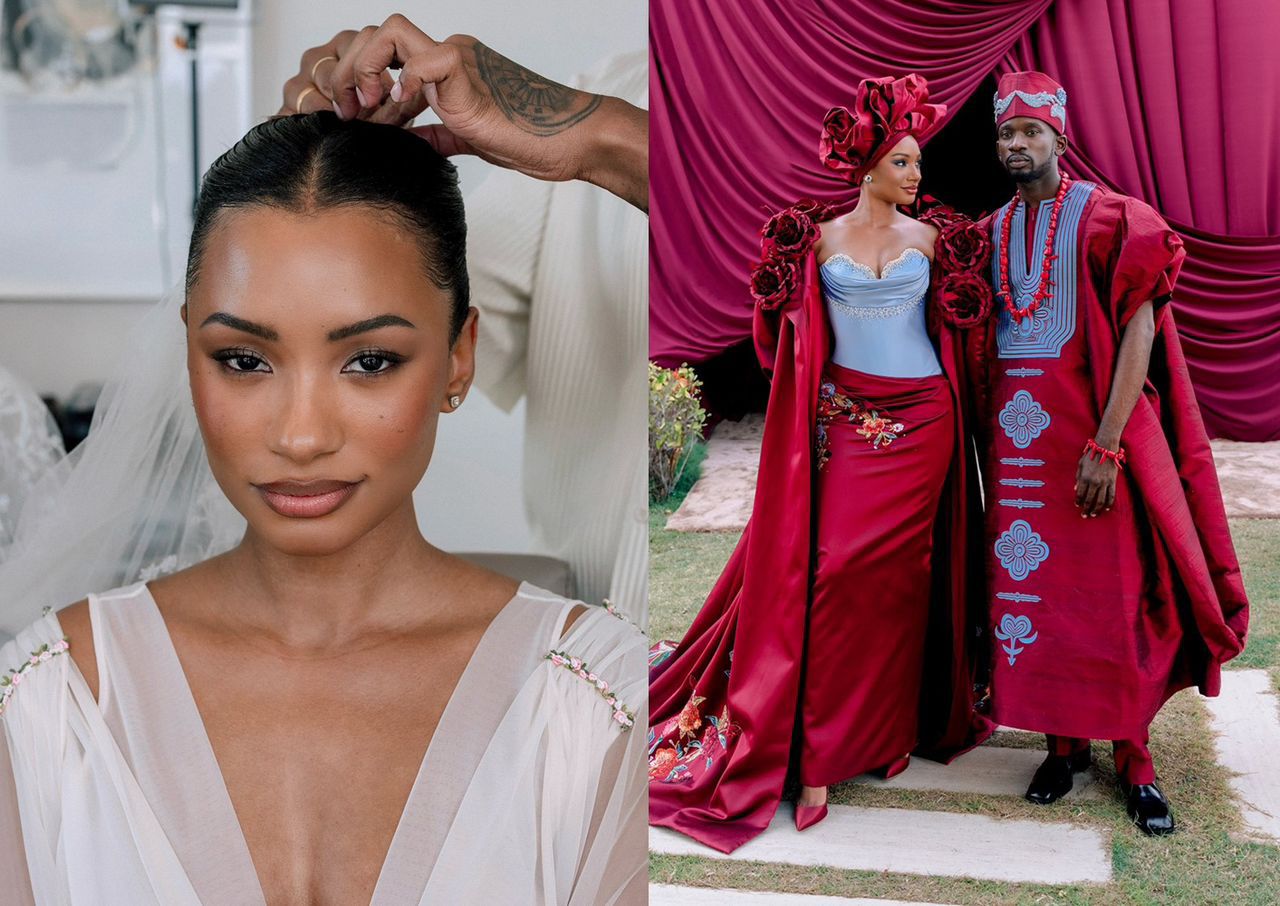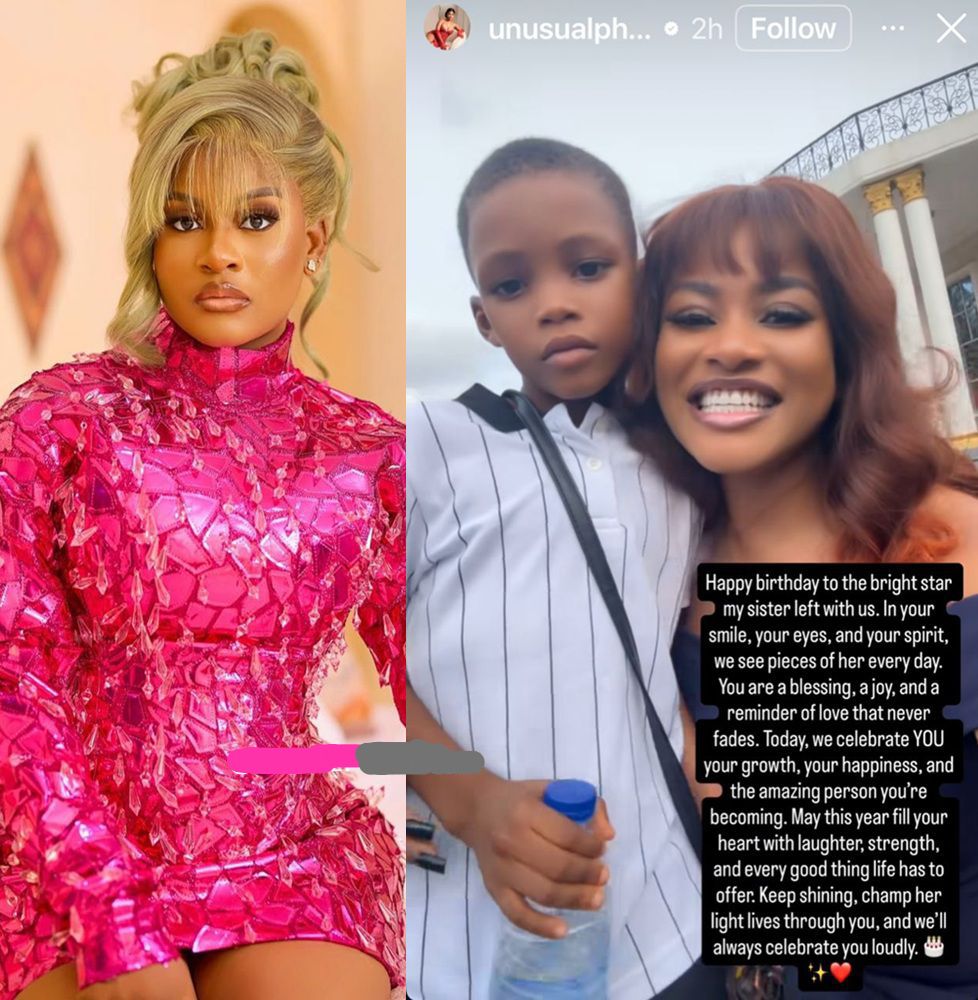
“I’m Just Waiting for the Fake Love to Start” – BBNaija Star Uriel Mourns Uncle Fabian Adibe, Calls Out Neglect

The Nigerian entertainment industry has once again been thrown into mourning with the heartbreaking news of the passing of veteran Nollywood actor, Fabian Adibe, who died at the age of 82. While tributes continue to pour in for the respected actor who contributed immensely to the growth of the Nigerian film industry, reality TV star and singer, Uriel Oputa, has expressed her deep sorrow over the loss, taking to social media to not only mourn her late uncle but also to call out the hypocrisy and neglect that she says defined the last years of his life. Her words have sparked an emotional reaction from fans and colleagues alike, with many now reflecting on how often legends and veterans in the Nigerian entertainment industry are left abandoned until their deaths.
Uriel, who rose to fame as a housemate on Big Brother Naija and has since built a strong following with her music and lifestyle content, did not mince words in her emotional tribute. In a post that has now gone viral, she wrote, “I’m just waiting for the fake love to start. I can’t say much out of respect but you see this one here, it’s very personal to me, and I will say this: nobody checked on my uncle. To my bestie Chi and her sister Nk, God bless you both for what you did for Popsi. Rest on sir.” Her post resonated deeply with fans who are familiar with the sad reality of how veterans in the creative industry often fade away into obscurity without adequate recognition, financial support, or community care. Fabian Adibe was not only her uncle but a household name in the golden era of Nollywood, appearing in countless movies that shaped the Nigerian film industry, yet according to Uriel, many who could have shown concern during his lifetime failed to do so.
The rawness of Uriel’s grief was palpable as she spoke of “fake love,” a phrase that has become all too common in Nigeria’s celebrity culture, where tributes often pour in after the passing of a public figure, despite little to no support being shown while they were alive. Her statement has sparked conversations about whether the Nigerian entertainment industry and society at large truly value their pioneers, or if respect is only shown when it is too late. Fabian Adibe was known as one of Nollywood’s most respected elders, often playing roles of wisdom, dignity, and fatherhood in films. Despite his towering contributions, Uriel’s revelation suggests that his later years were marked by silence from those who once benefited from his artistry and presence.
For many fans, Uriel’s outburst is more than just personal grief—it is a wake-up call. In her honesty, she touched on the broader issue of how Nigerian society, particularly within the entertainment scene, often fails to properly care for its veterans. Actors, musicians, and creatives who once brought joy to millions often pass away in obscurity, with the news of their death serving as a reminder of how quickly fame and admiration fade when health, age, and circumstances change. Fabian Adibe’s death, now clouded with this revelation of neglect, has pushed many to question whether the industry needs more structured support systems for aging actors.
Uriel’s message was also laced with gratitude, as she made special mention of her close friend Chi and her sister Nk, who she revealed had stood by her uncle during his difficult times. “God bless you both for what you did for Popsi,” she wrote, signaling that while many failed to show up, there were still individuals who offered genuine care and support. Her recognition of their efforts stood in stark contrast to the silence she accused others of maintaining. This duality—between genuine care and performative affection—formed the core of her message, and it is what many fans have been debating since her post surfaced.
Reactions to her tribute have been pouring in online, with some applauding her bravery for speaking the truth even in a moment of grief, while others cautioned that such revelations could spark unnecessary tension during a time of mourning. Still, the overwhelming response has been one of agreement with her sentiments. Social media timelines are now filled with tributes to Fabian Adibe, alongside discussions about the state of welfare in Nollywood. Many fans are pointing out that this is not the first time such issues have been raised, citing past cases of other veterans who passed away after years of struggling financially or battling illness without adequate industry support.
As fans and colleagues continue to grieve Fabian Adibe’s passing, Uriel’s words have added a poignant dimension to the loss. Her insistence that “nobody checked on my uncle” challenges everyone—from fellow actors and fans to industry leaders and cultural institutions—to reflect on how we treat those who once shaped our lives with their work. For a generation of Nollywood lovers, Fabian Adibe’s face was a familiar one on the screen, a comforting figure who embodied wisdom, tradition, and fatherly guidance in countless movies. To now learn, through Uriel’s testimony, that his final years may have been spent without the love and support of many, is a sobering thought.
Uriel’s grief also brings attention to the personal pain behind celebrity losses. Too often, the mourning of public figures becomes a spectacle, with fans and media outlets focusing only on their legacy and ignoring the family members left behind, who must grapple with private anguish. For Uriel, Fabian Adibe was not just a Nollywood veteran—he was “Popsi,” her beloved uncle, whose absence has now left a painful void. Her honesty about the neglect he suffered serves both as an emotional release and a public reminder of the real human costs behind celebrity deaths.
As tributes continue to flow, one thing is clear: Uriel’s words have struck a chord. Whether one agrees with her decision to publicly call out neglect or not, it is impossible to ignore the truth she has voiced. Nigerian culture is rich with proverbs that remind us that it is better to show love while people are alive than to heap praises when they are gone. Fabian Adibe’s passing, alongside Uriel’s heartbreaking revelation, is now serving as a powerful reminder that our actions towards people in their lifetime matter more than any tribute that can be written after their death.
Uriel’s pain is personal, but it has now become part of the national conversation. For Nollywood, this could be another turning point—a chance to seriously reconsider how the industry treats its elders and whether new structures should be put in place to provide care, recognition, and dignity to those who built the foundation of the industry. For fans, it is a reminder to reach out, to show love, and to ensure that we celebrate our heroes while they are still here to feel it. And for Uriel, her words may have been born from grief, but they have ensured that her uncle’s memory will not fade quietly. Instead, Fabian Adibe’s passing is now tied to a call for change, a demand for genuine love, and a challenge to a society that too often waits until it is too late to show it.
Fabian Adibe has gone to rest, but through his niece’s voice, his final message has been amplified: love should not wait for death before it is expressed.


